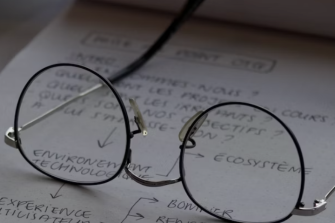It is a potential problem for any board and, when it takes hold, it is very difficult to shift. But good governance is the antidote, as the following case study demonstrates.
A case study in governance failure
Our case study is of an organisation responsible for managing a valued public good. For many years one of its main programmes was a form of ‘resource enhancement’. This programme was strongly supported, indeed insisted upon, by a small but significant group of stakeholders. Not surprisingly they were the people with the greatest interest in the perceived benefits of the ‘enhancement’ programme.
Over time the programme had become so embedded in the organisation and so enthusiastically supported by its stakeholders that it was seldom questioned and aggressively defended when it was. It was a classic example of an organisational ‘sacred cow’ even though for many years scientists— expert in the kind of enhancement involved—had pointed to it being problematic. Not only was it failing to achieve the enhancement objective, but it was also likely speeding up the resource’s very visible deterioration.
Matters came to a head when an independent scientific report commissioned by the organisation’s parent body highlighted the inherent deficiencies in the programme. The report was stridently dismissed by the organisation’s then board and the staff and volunteers directly involved in its implementation. As is often the case when wilful ignorance is on display, the people involved seemed to be well-intentioned and genuinely thought they, not the scientists, were right.
It is difficult to explain why people should resist more credible contrary evidence. Perhaps it is the human vulnerability to ‘magical thinking’. [1] Perhaps it is something more insidious. The political domain, for example, has recently gifted us the notion that it is acceptable to have ‘alternative facts’. Other explanations have been speculated on in relation to climate change:
Is it pure arrogance that makes laypeople think they know better than scientists who have spent their lives painstakingly researching an issue? Or a desperate insecurity that makes them unable to stand the respect accorded to experts. [2]
Whatever the reasons, when a board like the one in this narrative has an inexplicable commitment to a failing strategy, what practically can be done? What needs to happen?
Getting to grips with the problem
There is a saying in organisational change management that ‘to change the people you have to change the people’. In this case, a triennial election coincided with stakeholder dissatisfaction with the board for reasons not directly connected to the programme failure at the heart of this story. Two-thirds of the board’s membership was replaced. The election of a new board chair was also significant. The board got a leader who was prepared to ensure that the board got to grips with organisational performance issues that had not been addressed let alone properly understood.
The process started with examining the board’s own role. With the help of an independent governance adviser, the new board discussed what good governance in the organisation might look like. This led to the later adoption of a board charter codifying how the board would go about its work. The new board also took a fresh look at the organisation’s purpose and defined the key outcomes the organisation must achieve to fulfil that purpose. The board agreed to focus on four priorities as the reference point for the allocation of resources.
One of these was to address the resource enhancement issue. That process started with a series of consultation meetings with the stakeholders who had the most to both lose and gain. Expert advisors were brought in to talk directly with those whose intuition and reliance on anecdote had previously led them to conclusions contrary to the science. Slowly, the reality of the deteriorating resource and its causes began to be better understood.
Ultimately, however, a decision about the future of the programme sat with the board. With input from leading resource management scientists and a further independent report on how the organisation was conducting the program, it was ready to decide. Aware that there would be external (and possibly internal) opposition, the board carefully considered the evidence and the risks associated with continuing or ceasing the programme. The board would be criticised either way. It decided to terminate the programme with immediate effect.
Ten key lessons from this journey
The experience of this board underlines several key elements in good governance. These demonstrate that overcoming wilful ignorance is not a simple matter of board members ‘pulling their heads from the sand’:
- Without the right people on the board, all bets are off. The progress described above would not have been possible without major changes to the board’s composition. Even that may not have been enough on its own. Another critical element was electing a chair capable of leading the board and determined to drive necessary change.
- A good board ‘on paper’ is only potentially effective. Without the right management to work with, implementing its change agenda will be slow, if possible at all. This board quickly found itself taking steps to strengthen the executive leadership of the organisation.
- Despite the modern trend to try and prescribe how boards should operate (in other words to ‘legislate’ for good governance), board effectiveness depends on a group of people and how they behave. One crucial behaviour is applying a high level of intentionality about where the board should focus its time and attention. Typically, most board meeting time is consumed by ‘business as usual’, which is something the board can add little or no value to compared to a focus on the (relatively few) matters that are critical to organisational success.
- It is the component of organisational architecture ultimately accountable for organisational well-being; a governing board must lead. A core leadership responsibility is to explore, describe and act on reality. In this organisation, the old board was apparently content to follow rather than lead. It seemed to be in thrall to the expectations, ignorance and, arguably, the self-interest of a particular group of stakeholders.
- Individually, board members—even if elected to represent a particular constituency—have a responsibility to think for themselves. Their board position not only gives them a unique responsibility to deal with the key issues facing the organisation but is likely to provide information and advice that gives them a far better understanding of those issues than most, if not all, of their constituents. As political philosopher Edmund Burke said many years ago (1774): ‘Your representative owes you, not his industry only, but his judgement; and he betrays, instead of serving you, if he sacrifices it to your opinion.’
- A board must concentrate on the things that really matter. When decisions are sufficiently important to be taken at board level, they deserve proper time and attention. It is quite possible, as this board found, that the normal board meeting schedule will not provide that. Additional ‘workshop’ style meetings were added to allow thorough briefings and careful consideration of the issues.
- To earn respect from those to whom it owes a duty of care, a board’s decision-making must be based on a credible evidential basis, thoroughly interrogated and explained. Anecdotally based narratives are seductive but can be self-serving and ultimately destructive to organisational performance.
- Board members who for any reason cannot participate in important discussions have an obligation to inform themselves as far as they can—but also to acknowledge that they have little moral right to second-guess those who have been more continuously involved in the dialogue. For various reasons, some members of this board were absent from key discussions but, ultimately, they trusted the judgement of those who were better informed.
- Just like a serious sports team, a board (particularly one facing serious challenges) benefits from having a coach to support it in articulating what it wants to achieve and to think through how it will operate at a necessary level of effectiveness and efficiency. The independent governance adviser stayed with the board during this transition process.
- Not least, effective boards (and board members) are courageous—they do the right thing and they make the decisions they consider are in the best interests of the organisation as a whole even when they expect this will be unpopular with some influential groups.
Notes
- Mathew Hudson, ‘Magical Thinking.’ Psychology Today, March, 2008 https://www.psychologytoday.com/us/articles/200803/magical-thinking
- Lucy Mangan, ‘Climategate: Science of a Scandal review – the hack that cursed our planet.’ The Guardian, Thursday 14 November 2019, on-line edition.








